In 1943, an interesting incident took place at a big restaurant somewhere in central Okinawa.
A party was being held at the restaurant this evening, and one of the invited guests of honor happened to be Choki Motobu.
Yes, Choki Motobu, the notorious Karate master/former street fighter (or thug if you asked Gichin Funakoshi) who devoted his entire life to training in and teaching the Okinawan art of Karate in a “no-nonsense”, uncompromising manner, was a VIP at this particular party.
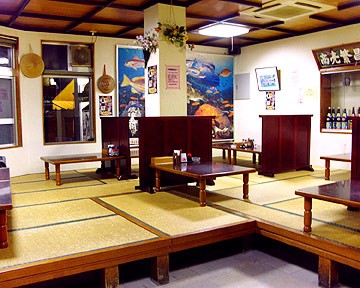
Arriving at the restaurant, Motobu – being an elder – was not given a seat near the entrance (like most guests) but rather all the way inside the restaurant. This was nothing strange though, since seating is an important part of the Japanese culture – where you sit among other people clearly shows what position you have in the social hierarchy.
And Motobu was, after all, the descendant of the sixth son of the Okinawan King, Sho Shitsu (1629-1668), namely Sho Koshin.
Sitting at the back was a place of honor.
And – as we will soon see – it was a great strategical place to sit at if a fight was about to go down.
As the evening slowly progressed, the party was going great. Speeches were being held, good food was being eaten, a glass of Okinawan sake or two were swept down and everyone seemed to be enjoying themselves.
Until an unknown man suddenly burst into the restaurant.
His body was covered with tattoos of all kinds of shapes, and there was no doubt that he was clearly upset about something. The man stared around the room, and loudly announced that he had once been a student of Motobu and now demanded to challenge him in front of everyone!
Can you imagine!?
Several guests immediately stood up and scolded the former student for being so rude. “Students should never say such things to their master, get out of here!” they said.
But he wouldn’t listen.
Motobu himself, who had just noticed the newly arrived “guest”, calmly put his chopsticks down and reached for his AK-47 (no, just kidding! Ignore this line!)
“Just shut up, will you!” yelled the former student, now displaying a big knife in front of everybody. This came as no surprise though, since he was a butcher by trade.
The man spotted Motobu, and started making his way through the crowd, finally facing Motobu. “If can use this,” he said, waving the knife in front of Motobu’s face, “I will never lose the fight!” he declared – stabbing the knife straight down into Motobu’s table.
Big.
Mistake.
For the record, Motobu had been called many things in his life, but a poor fighter was never one them, and certainly not a coward. His record for quickly dispatching challengers in no-rules confrontations clearly spoke for itself, and in fact, Motobu had never lost a fight after the age of 20, according to himself.
If picking bare-knuckle fights in the shady Tsuji red-light district of Naha was an art, then Motobu was Rembrandt himself.
Ignoring a challenge like this was nothing Motobu intended to do.
Especially not now when this madman had totally ruined Motobu’s appetite.
At this point, naturally, many of the guests became frightened and ran out of the room, since they figured the whole place was going to get trashed any second.
But Motobu’s expression remained unchanged. 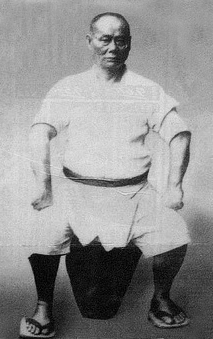
“I won’t fight with any weapons,” he stated calmly. “And I will absolutely not fight with a knife!” Motobu continued.
But the aggressive butcher insisted, since he knew that we could never take on Motobu “Saaru” Choki unarmed. The stare down was like something taken straight out of an old ‘Western’ movie.
So finally, Motobu asked “Are you really that determined to fight me with a knife?”
“I am,” the student proclamed defiantly. “And I won’t change my mind!”
“All right then,” said Motobu finally. “I will take you up on your offer, but we should not fight in the restaurant. Let’s go outside and settle this.”
The student didn’t know it, but his fate was just about to take an ugly turn.
The student, looking satisfied, pulled the big knife out of the table and headed for the door. Motobu stood up and followed closely behind. But just before the student reached the door, Motobu took aim, rushed a few steps forward, and kicked his opponent hard like a mule straight in the back.
You could hear his backbone shatter all the way to Hong Kong.
The student fell to the ground with a thud.
A couple of guests hurried to help the now motionless butcher, who was crying in pain, and after considerable effort they were able to carry him all the way to his home.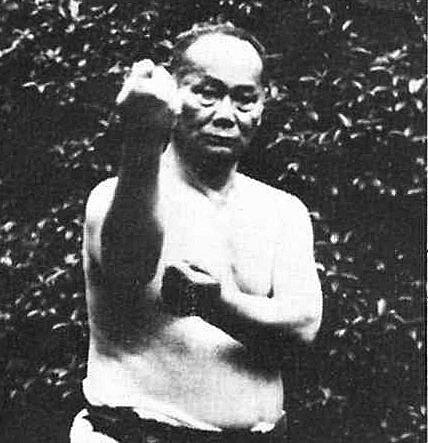
About a week later, a friend of one of Motobu’s closest students went to visit the butcher to see how he was doing. Even though a whole week had passed, he still could not move from bed.
When he finally recovered (the story never tells us how long this took…), the former student was so embarrassed that he eventually moved, left town, and was never seen in the area again.
And that was the true story of how Motobu Choki ruined a whole party.
But did he really?
I believe that the term “Karate Ni Sente Nashi” is appropriate to bring up at this point. As you may or may not know, “Karate Ni Sente Nashi” is perhaps the most famous proverb/maxim found in Karate (maybe because Funakoshi Gichin used it in every second sentence) and simply means “There is no first attack in Karate”. It’s like a golden rule.
But if you’re going to be picky, “sente” really means “initiative/first move”, and not “attack”.
This difference is small, but important.
You see, as we question the ethics of Motobu’s behaviour in this story, it is vital to realize that although the butcher hadn’t really attacked Motobu per se, he had definitely taken an initiative. To an onlooker it might seem like Motobu just kicked some poor guy’s spine out, but he was actually ending a fight.
A fight that had begun the second that butcher kicked open the restaurant door.
Whether he realized it or not.
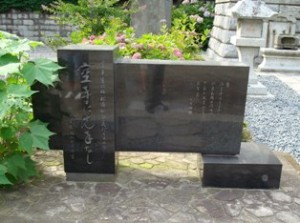
And Motobu was simply following “Karate Ni Sente Nashi”.
But the funny thing is, even though Motobu acted in perfect accordance with the “golden rule” of Karate he often admitted to disliking the rule himself! He was often quoted as saying “Karate is sente!” which at a first glance would seem like the exact opposite of “Karate Ni Sente Nashi”.
How come?
I think this stems from both the fact that he openly disliked his rival Funakoshi (who loved saying “Karate Ni Sente Nashi”) as well as from the fact that he interpreted “Karate Ni Sente Nashi” as “you can’t punch somebody unless they punch you first”, when it really should be about ‘evil’ intent and initiative on a more strategical or metaphysical plane.
However, being the ‘no-nonsense’ man that he was – perhaps metaphysics was not Motobu’s strongest side.
To round it off, let’s look at something Nagamine Shoshin wrote in his book “Tales of Okinawa’s Great Masters” that I think is truly important:
“The time has come to learn in sincere humility the true meaning of “Karate Ni Sente Nashi” […]
In martial arts, wherever kokoro [the spirit] has been forgotten, or never learned, so too will the principle of “Karate Ni Sente Nashi” also be misunderstood, or worse, not even known!
In reality, “Karate Ni Sente Nashi” is a warning, and any martial artist who ignores this maxim is a hypocrite.”
Consider yourself warned.
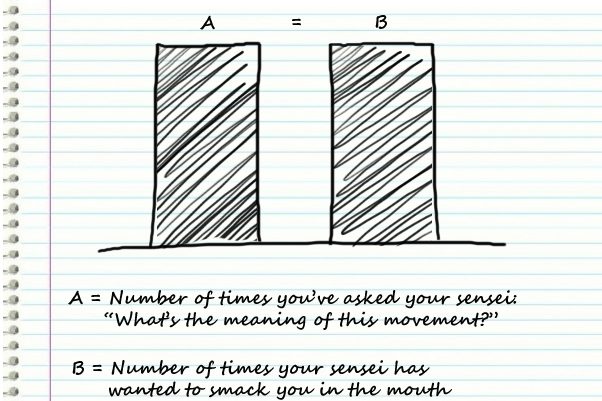

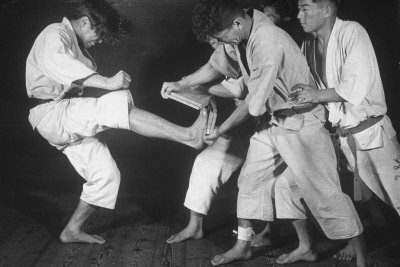
18 Comments